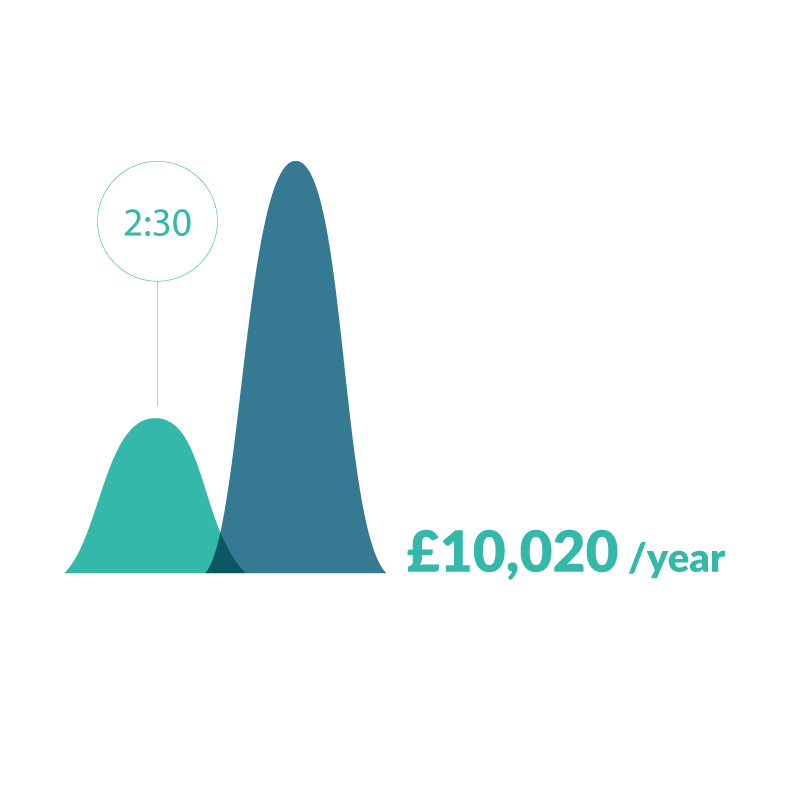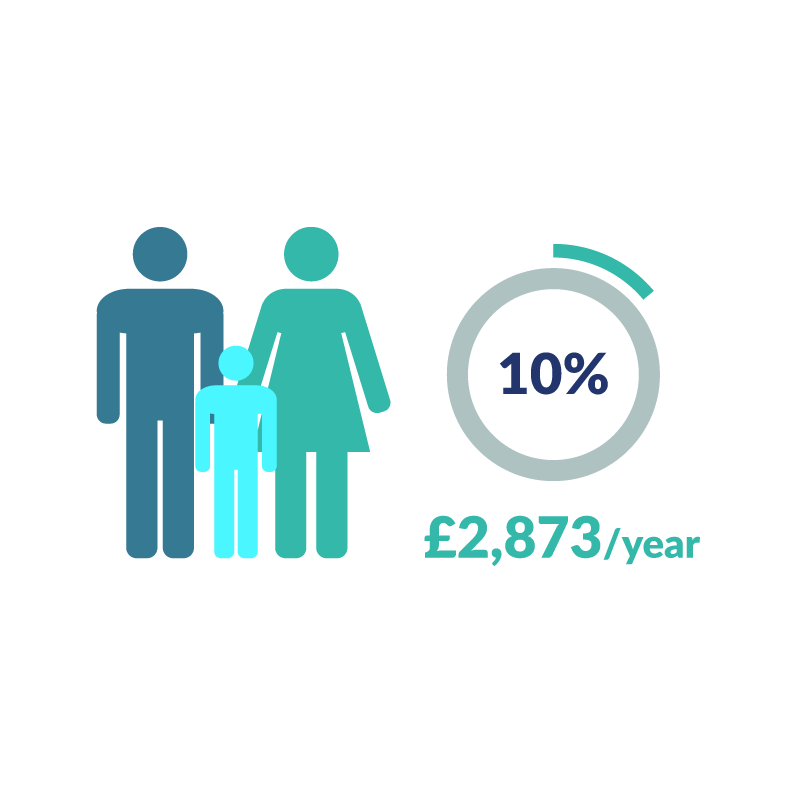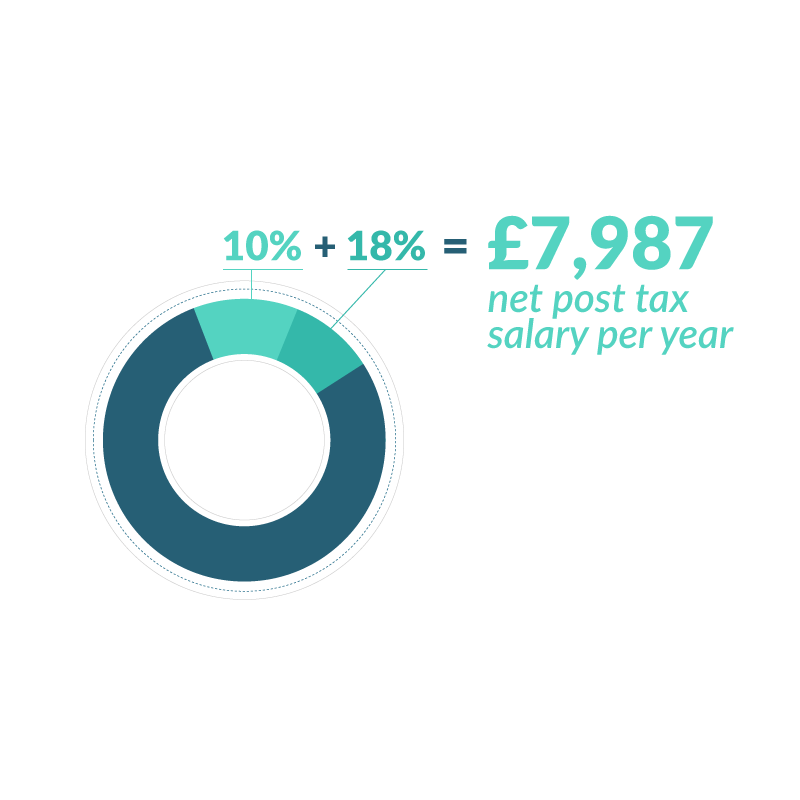Cost of a London Commute Study – 2020
By Brendon Craigie
Co-founder and Managing Partner
Introduction
When I set up Tyto in 2017 I wanted to develop our business around a new location agnostic operating model. This model means that we have an entirely remote team that works as one across Europe. Our employees can opt to work from home or in a co-working space.
I had three reasons for adopting a location agnostic model. First, I wanted to build a fast-paced dynamic agency but without my previous three-hour round-trip London commute. Second, I saw a fixed office as the greatest constraint on access to talent as it limited the catchment area to recruit the best people from. Third, I wanted to build a one team culture across multiple European countries and I saw offices as building barriers between people.
The benefits to our employees, our clients and our business of a location agnostic model have been significant and satisfying. Without the shackles of costly London commute, we achieved my goal of having a talented, connected and productive agency team who can live anywhere, and work anywhere, and deliver outstanding service to clients.
The strength of our location agnostic model of working has been very much confirmed in 2020, as the Covid-19 crisis prompted safety measures that saw employees and companies forced to overcome location as a barrier to work. At Tyto we have been fortunate that this way of working has been ingrained in our day to day since the beginning, meaning we were able to continue to work with little disruption to our regular operations. Other companies working in the traditional central office model had to spend time grappling with the challenges of connecting a newly scattered team and infrastructure while the economy was hemorrhaging and society hurting.
We were also able to share tried, tested, best practice advice with our clients and collaborators. As the season turns warmer, optimism grows and deaths and infections slowly, thankfully decline, social distancing measures begin to ease. Working from home will likely remain in place a while longer, as the government advises travelling to your central office only if you absolutely must. However one day in the near future, workers will be required to shrug off their trackpants and dust off their travel cards and contemplate travelling back into a central office.
After spending some time experimenting with a new way of working, both enjoying some benefits while equally experiencing frustrations, workers are likely questioning the validity of their daily commute into the physical, central office.
We created this annual study into the time and financial costs faced by London bound commuters to shine a light on the costs they likely bear, and to the raise the level of debate about considering the newly tested alternative ways of working that are better for employees and better for business.
This study looks at the cost of a commute when traveling to London from the most popular commuter towns. We’ve anchored our research around a nominal London central station of Kings Cross, one of London’s busiest underground stations. The costs measured in this study are time and financial but there are undoubtedly significant health and welfare costs which impact employees and their energy levels at work which are hard to objectify. These include:
- Greater restrictions on where you choose to live because you need to commute each day to London
- Higher property costs and less flexibility when securing schooling and childcare for children
- Less time with friends and family
- Less time for leisure and exercise
- Less time to focus on eating a fresh and healthy diet
- Less time to rest and recharge
- More stress from travelling during peak hours
- More apprehension about being exposed to viruses in cramped commuting spaces.
It is not difficult to estimate that the impact on employee happiness is considerable. Most employers will agree that there is a direct correlation between a person’s happiness and their level of valuable productivity and enjoyment of their work.
I hope you find this study valuable and we welcome feedback on how we can make improvements to it next year.
Executive summary
- The average financial cost of a commute into London is £5,114 per year or 18% of the average annual London net post tax salary.
- The average daily time cost of a commute into London is nearly two and a half hours per day when you combine the rail commute, travel to/from home to the station, and connecting London Underground travel to the office.
- Annually this equates to employees giving away an average of £10,020 worth of unpaid overtime to get to the office, based on the Pay Scale estimated average annual London annual salary.
- When you project this commuting time over a year the average cost of a commute to London equates to 23.5 full 24-hour days per year. Over a ten-year period this is 235 full 24-hour days, which is the equivalent of one full working year of 24-hour days of a person’s life after you have deducted holidays. In summary, employees spend the equivalent of one entire working year of their lives commuting over a ten-year period.
- For parents, commuting time requires additional wrap around child care time and costs. The average cost of wrap around child care for London commuters is £12.17 per day or £2,873 per year. This equates to an average of 10% of employees net post tax annual salary.
- When you combine the annual cost of travel with the cost of wrap around child care the average London commuter with children is paying out £7,987 of their net post tax salary per year to get to their London office. This equates to 28% of the annual average net post tax London salary.
Conclusions
London commuters are suffering. Not just from the unpleasantness of commuting into London every day on overcrowded trains and the newly heightened health risks of being in extremely close proximity to others for extended periods of time. They are suffering financially, losing nearly a third of their post-tax salary to travel costs and wrap-around childcare. They are also suffering by losing the equivalent of almost 24 days of their lives per year to commuting. To add salt to the wound, London bound commuters are doing all of this suffering unpaid. This equates to doing the equivalent of £10,020 worth of unpaid overtime per year to get to the office
At Tyto, we are on a mission to challenge the status quo that says that to be productive employees must commute to a central office every day of their working life.
The technology industry is leading the way in the adoption of location agnostic working with companies like Remote, GitHub and Automattic leading the way. We think that is time for industry to follow the lead of the world’s most innovative companies, and to consider continuing flexible employment practices well after the threat of Coronavirus has passed as a permanent option for a new way of working.
The financial, time, and health and welfare benefits to employees are considerable. We believe happier, healthier, and more financially secure employees are a great thing for industry. In our case as a PR company, we believe that the real winners are our clients because they get to work with the very best people we can attract, not just those who can do a daily London commute.
It’s time for change, it’s time for action, and it’s time for less costly and wasteful commuting.







